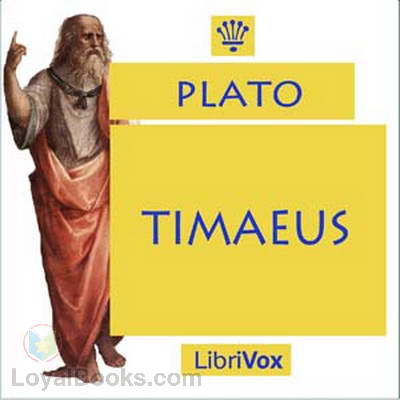Timaeus |
|---|

Timaeus by Plato is an insightful exploration of the origins of the universe and the nature of existence. Presented in the form of a dialogue between four characters, including the philosopher Socrates, the text delves into the concept of the demiurge, a divine craftsman responsible for creating the world according to a rational plan.
Plato's ideas on cosmology and metaphysics are thought-provoking and complex, touching on themes of order, harmony, and the relationship between the physical and spiritual realms. The text also delves into the structure of the natural world, discussing the elements of earth, air, fire, and water and their role in the composition of all living things.
While some readers may find the dense philosophical arguments in Timaeus challenging to grasp, the text offers a stimulating intellectual journey that pushes readers to consider the fundamental questions of existence and the nature of reality. Overall, Timaeus is a classic work of ancient philosophy that continues to inspire and provoke thought centuries after its initial publication. Book Description: “Our intention is, that Timaeus, who is the most of an astronomer amongst us, and has made the nature of the universe his special study, should speak first, beginning with the generation of the world and going down to the creation of man…” ‘Timaeus’ is usually regarded as one of Plato’s later dialogues, and provides an account of the creation of the universe, with physical, metaphysical and ethical dimensions, which had great influence over philosophers for centuries following. It attributes the order and beauty of the universe to a benevolent demiurge – a ‘craftsman’ or god – fashioning the physical world after the pattern of an ideal, eternal one. The dramatic setting of the dialogue is the day after a discussion in which Socrates has described his ideal state – as in the ‘Republic’. A conversation between Socrates, Critias, Hermocrates and Timaeus, including Critias’ account of Solon’s journey to Egypt (where he hears the story of Atlantis), soon gives way to the monologue by Timaeus that forms the bulk of the work. ‘Timaeus’ is translated by Benjamin Jowett and his comprehensive introduction to and analysis of the work precedes the text itself, which he describes as “the growth of an age in which philosophy is not wholly separated from poetry and mythology”. |
| Genres for this book |
|---|
| Ancient Texts |
| Classics (antiquity) |
| Non-fiction |
| Philosophy |
| Languages |
| Links related to this book |
|---|
| Wikipedia – Benjamin Jowett |
| Wikipedia – Plato |
| Wikipedia – Timaeus |
| eBook Downloads | |
|---|---|
|
ePUB eBook • iBooks for iPhone and iPad • Nook • Sony Reader |
Kindle eBook • Mobi file format for Kindle |
|
Read eBook • Load eBook in browser |
Text File eBook • Computers • Windows • Mac |
| Review this book |
|---|